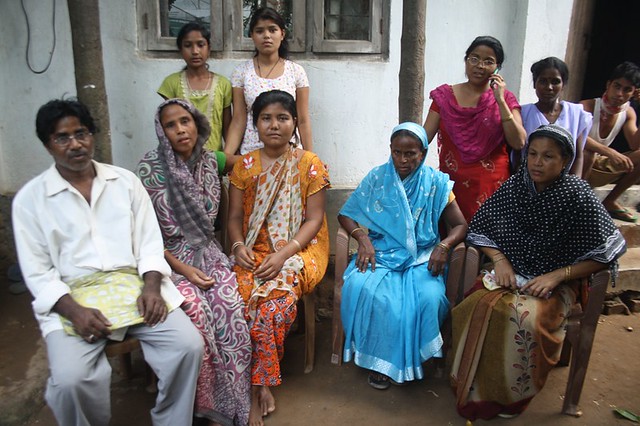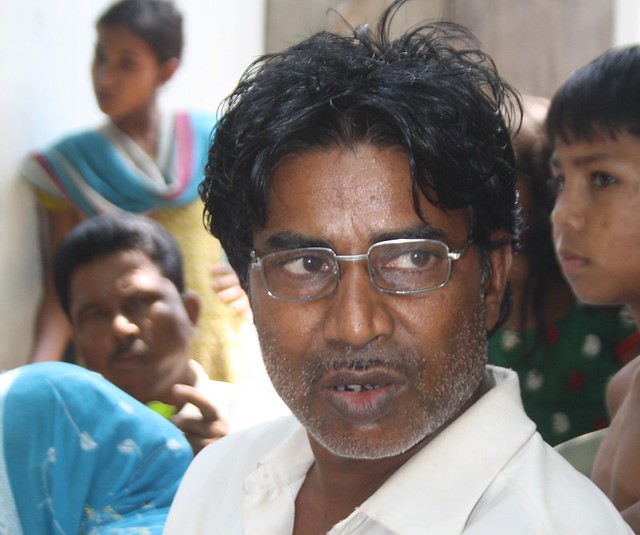By Musaddique Thange,
To deny people their human rights is to challenge their very humanity– Nelson Mandela
One of the world’s leading human rights organizations, Amnesty International, released its 2013 annual report in May on the state of the world’s human rights. The report is a shocking exposé of human rights violations, from repressive measures of military dictatorships to horrific crimes against humanity committed in ethnic and sectarian conflicts across the world. Amnesty’s report includes some eye-opening facts about the human rights situation in India.
Tragic Indifference
With passing coverage in the media, the report’s findings have failed to move the establishment. With some notable exceptions, mostly in civil society, the tragic indifference to human rights was duly noted by Amnesty – “Victims of human rights violations and abuses were frustrated in their quest for justice largely due to ineffective institutions and a lack of political will.”
India’s reluctance to confront human rights abuses within its borders, was evident by India’s refusal to facilitate a visit by the UN Special Special Rapporteur on torture and by the Working Group on Arbitrary Detention.
Impunity
Perhaps the most damning indictment of the human rights situation in India, is the pervasiveness of impunity across various states. The report notes: “Impunity for human rights violations remained pervasive, with no repeal of the Armed Forces Special Powers Act or the Disturbed Areas Act. Both Acts grant excessive powers to security forces in specified areas, and provide them with de facto impunity for alleged crimes.” The report also refers to enforced disappearances and extrajudicial executions in Assam (in 1998 and 2001), Manipur, Nagaland, Punjab (during 1984-1994) and in Gujarat (during 2003-2006).
Feeding this culture of impunity is the inaction and ineffectiveness of state institutions. The National Human Rights Commission (NHRC) closed its inquiry into alleged unlawful killings and mass cremations by police during the Punjab conflict without recommending criminal investigations, while CBI’s report into these killing remains unpublished. In August 2012, the administration of Jammu and Kashmir rejected the state Human Rights Commission’s recommendation to use modern forensic techniques to identify more than 2,700 unmarked graves in northern Kashmir.
While Amnesty notes the recent conviction of former minister Maya Kodnani in Gujarat, it is emphatic that “ten years after the 2002 Gujarat violence in which 2,000 people, mostly Muslims, were killed, the majority of victims and their families had not secured justice.”
Ethnic and Caste-based Violence
Amnesty’s Report notes that the ethnic violence between Bodo and Muslim communities in Assam in July and August 2012, in which over 400,000 were temporarily displaced across 270 camps was marked by inadequate response from the state authorities.
Amnesty noted that Dalit communities continue to face discrimination and attacks, and special laws to prosecute suspected perpetrators were rarely used. “Adivasi (Indigenous), fishing and other marginalized communities continued to protest against forced eviction from their land and habitats…”
Violence against Human Rights Defenders
“People defending the rights of marginalized communities continued to be targeted by state and non-state actors – as highlighted by the UN Special Rapporteur on human rights defenders in February,” noted Amnesty, listing specific cases of violence and intimidation of human rights activists:
1. In July 2012, environmental activist Ramesh Agrawal was shot and injured in Chhattisgarh, for his work in exposing environmental and tribal rights violations linked to mining projects.
2. Adivasi Soni Sori’s case of torture and sexual harassment by the Chhattisgarh police during her custody in 2011 is now being considered by the Supreme Court.
3. Adivasi rights activist Dayamani Barla was imprisoned for two months, allegedly targeted by Jharkhand authorities for protesting against the forced eviction of farmers at Nagri.
Omissions in Amnesty’s Report
While Amnesty’s Report covers a wide range of human rights violations in India, it is incomplete, and fails to highlight some of the most repressive measures against minorities by law enforcement in various states:
1. Although Amnesty’s report covers the period from January through December 2012, the issue of illegal detentions and fake encounters is mentioned only in the context of the Supreme Court ordering new investigations into 22 alleged extra-judicial executions in Gujarat, mostly of Muslim youth, during 2003-2006. The fact that this repression is widespread, and covers multiple states is a glaring omission in Amnesty’s Report. Some of this is covered in the special reports of twocircles.net called “Terror Tales”, and before that in ANHAD’s report “What It Means to be a Muslim in India Today.”
2. While Amnesty correctly puts the death toll of the Gujarat pogrom at 2,000 it fails to mention that the carnage was characterized by some of the most brutal forms of sexual violence against women, many of whom were burnt alive after being raped or gang-raped. The report also fails to mention that an amicus curiae appointed by the Supreme Court had recommended the prosecution of state Chief Minister Narendra Modi.
3. The report does not mention that the State of Gujarat has managed to keep on its statute laws that clearly discriminate against religious minorities, such as the “Freedom of Religion Bill” which actually curtails an individual’s right to convert to the religion of his or her choice.
Wake-Up Call
WE, THE PEOPLE OF INDIA, having solemnly resolved to constitute India into a SOVEREIGN SOCIALIST SECULAR DEMOCRATIC REPUBLIC and to secure to all its citizens:
JUSTICE, social, economic and political;
LIBERTY, of thought, expression, belief, faith and worship;
EQUALITY of status and of opportunity;
and to promote among them all
FRATERNITY assuring the dignity of the individual and the unity and integrity of the Nation;
[Preamble to the Constitution of India]
Despite its shortcomings, Amnesty’s Report is a wake-up call to the establishment as well as civil society in India. Without adequate safeguards to protect human rights of every citizen, the promise of India, enshrined in the preamble to the Constitution, remains a distant dream.
Without a genuine commitment to safeguarding the life and dignity of every citizen, the nation’s secular fabric will continue to be torn apart by ethnic, sectarian and caste-based violence, and the state will become little more than a tool to manipulate and subjugate an unwilling populace. The issue of human rights deserves active engagement of every branch of government and of people of conscience from all walks of life. At stake is the nation’s future.




























